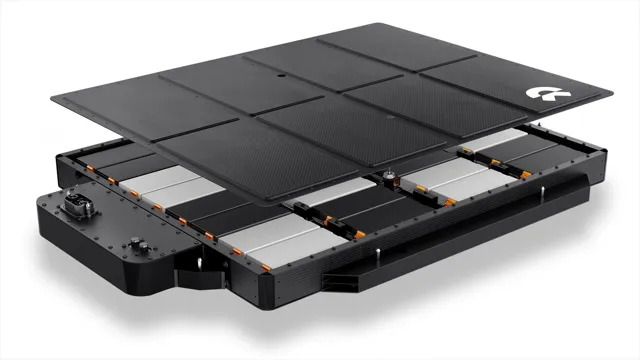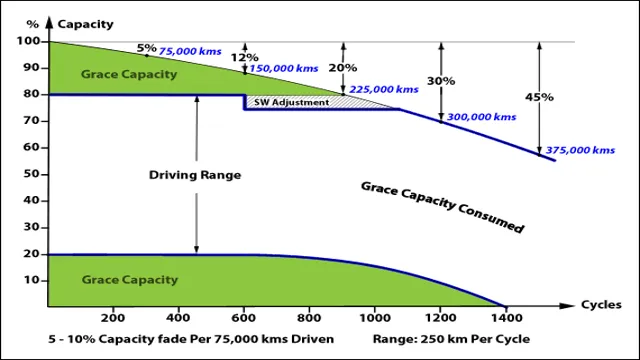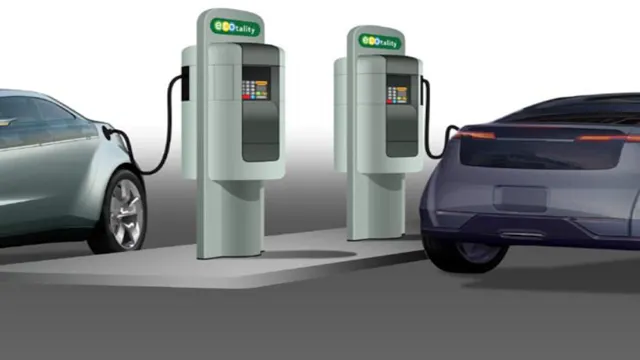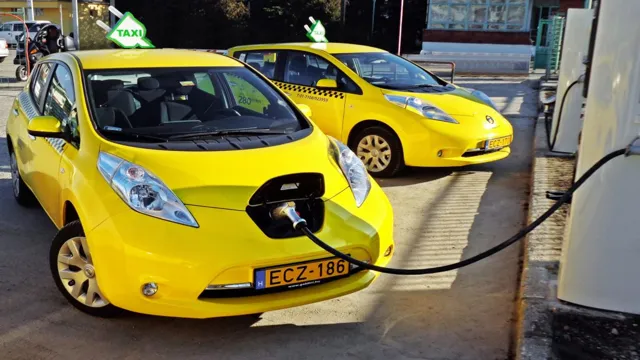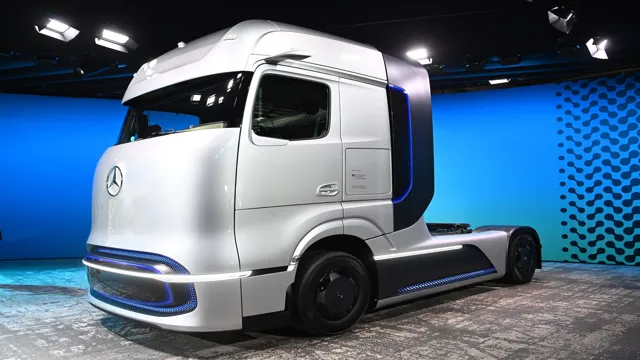Revolutionizing the Road: The Latest Electric Car Battery Advances You Need to Know About
Electric cars are becoming increasingly popular due to their ability to help reduce carbon emissions and minimize the effects of climate change. However, a major challenge with them has always been their batteries. Unlike a traditional gasoline-powered car, which can be refueled in minutes at a gas station, electric cars require recharging.
And even with the popularity of electric cars increasing, battery technology has remained a limiting factor for wider adoption of electric vehicles. But what if we told you that exciting advances in electric car batteries could change everything?
Longer Range on Single Charge
As electric car battery technology advances, we are seeing significant improvements in the range that these vehicles can travel on a single charge. With better energy storage capacity, more efficient charging systems, and new materials being used in battery construction, electric cars are now able to travel farther than ever before. This is great news for anyone who is looking to switch to an electric vehicle, but has been hesitant due to concerns about range anxiety.
With many electric cars now capable of traveling up to 300 miles on a single charge, these vehicles are starting to offer a viable alternative to traditional gas-powered cars. This is a result of years of research and development, and a commitment from automakers to invest in the future of sustainable transportation. As these advancements continue, we can expect to see even more improvements in electric car battery technology, making these vehicles an even more attractive option for drivers around the world.
New Battery Materials and Technology
With the advent of new battery materials and technology, the dream of longer ranges on single charges is finally becoming a reality. Traditional lithium-ion batteries are being replaced by more efficient materials like graphene and solid-state electrolytes, which offer increased energy density and faster charging times. These advancements have allowed for the production of electric vehicles with ranges of up to 300 miles on a single charge, making them a more viable option for daily commutes and long road trips.
In addition, researchers are exploring new technologies like lithium-sulfur and lithium-air batteries, which could potentially offer even greater ranges in the future. With these breakthroughs in battery technology, the future of transportation is looking brighter and more sustainable than ever before.
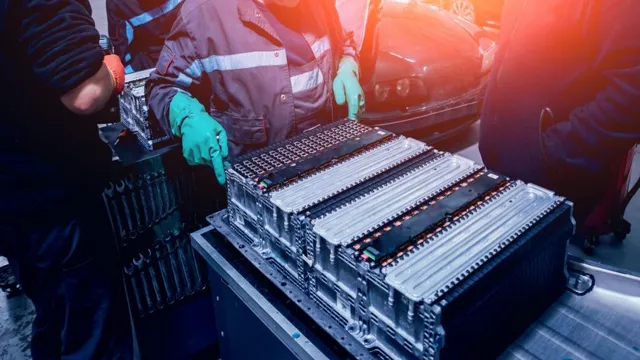
Improved Charging Speeds
Improved charging speeds are one of the most important advancements in the electric vehicle industry. With faster charging times, drivers can now enjoy longer ranges on a single charge, making EVs more practical for everyday use. The benefits of this technology are clear: improved charging times mean that drivers can now spend less time charging and more time on the road.
Instead of waiting hours for a full charge, you can now get a significant boost in just a few minutes. And as charging infrastructure continues to expand, the benefits of fast charging will only grow. This is a great development for anyone who is considering switching to an electric vehicle, as it makes owning one more convenient and accessible.
So if you’re looking for a car that can take you further, faster, an electric vehicle with improved charging speeds is definitely worth considering.
Lower Cost and Environmental Impact
Electric car battery advances are revolutionizing the automotive industry by making electric cars more accessible, affordable, and environmentally friendly. One major advantage of these technological advancements is that they are lowering the cost of electric car batteries, making them more affordable for the average consumer. Not only that, but advancements in battery technology are also reducing the environmental impact of electric cars by making them more efficient and longer-lasting.
As a result, these batteries are becoming a more sustainable alternative to gasoline-powered cars. In addition, companies are also working on developing more recyclable battery materials that further reduce the environmental impact. The future of electric cars looks promising, as the advances in battery technology are allowing for a more cost-effective and eco-friendly mode of transportation.
Development of Recyclable Batteries
The development of recyclable batteries is an incredibly important step towards creating a more sustainable and environmentally friendly world. Not only do they have a lower cost, but they also have a significantly reduced environmental impact. Previously, batteries could only be used once and had to be disposed of after their energy had been depleted.
This led to a significant amount of waste and pollution, as the batteries were often not disposed of properly. However, with the development of recyclable batteries, that is no longer the case. These batteries can be used multiple times and can be recycled at the end of their lifecycle, significantly reducing the amount of waste that ends up in landfills.
This is great news for the environment, as it helps to reduce our overall carbon footprint while also providing a more cost-effective and sustainable solution for powering our electronics and devices. Overall, the development of recyclable batteries is a win-win situation for everyone involved, providing us with a solution that is both affordable and environmentally responsible.
Decreased Dependence on Rare Metals
As our society becomes increasingly reliant on technology, the demand for rare earth metals has grown skyrocketed. However, these metals are not only expensive but they can also have negative environmental impacts during extraction. Fortunately, new advancements in technology have allowed for decreased dependence on rare metals, resulting in lower costs and less environmental damage.
Instead, alternative materials such as gallium nitride are being utilized in the production of semiconductors and LED lighting. These alternatives not only provide a more sustainable option but they also have the potential to enhance the performance capabilities of these technologies. As we continue to explore new advancements, we can look forward to a future where our dependence on rare metals will diminish, resulting in a more cost-effective and environmentally-friendly technology.
Reduced Manufacturing Emissions
Manufacturing emissions contribute significantly to environmental pollution, which in turn impacts human health and wellbeing. Lowering these emissions is crucial, and thanks to advancements in technology, this is now possible. Manufacturers can utilize low-emission technologies to reduce costs and environmental impact by cutting down on energy consumption and waste.
With newer and innovative technologies, manufacturers can also integrate renewable sources of energy to reduce greenhouse gas emissions. These companies can even use sustainable materials in their production processes to further reduce their carbon footprint. By adopting these greener practices, manufacturers can achieve a competitive edge over their competitors while also playing their part in creating a healthier environment for all.
Increased Efficiency and Power Output
As electric car technology continues to advance, battery efficiency and power output have become major areas of focus. In recent years, there has been significant progress in developing batteries with higher energy densities, faster charging times, and longer lifespans. These advancements not only improve the driving experience but also have positive implications for the environment, as more efficient batteries mean fewer resources needed for production and disposal.
With the increasing popularity of electric vehicles, there is a growing demand for battery technology that can meet the needs of modern drivers. Fortunately, continued investment and research in electric car battery advances have led to significant improvements in efficiency and power output, paving the way for a brighter, cleaner future on the road.
Innovative Battery Management Systems
Innovative battery management systems are revolutionizing the way we power our daily lives. Advancements in technology have led to increased efficiency and power output through intelligent battery management. These systems use sophisticated algorithms to optimize battery usage, prolonging battery life and reducing the need for frequent replacements.
For instance, they can monitor the battery’s charge level and adjust the charge rate accordingly, avoiding overcharging or undercharging. Additionally, these systems can predict battery failure and notify owners before they happen, preventing costly repairs and replacements. The best part is that these systems are becoming more accessible and affordable, making them a viable solution for all energy needs.
By embracing these innovative battery management systems, we can move towards a more sustainable and efficient future.
Enhanced Thermal Management
Enhanced Thermal Management is essential for improving the efficiency and power output of electronic devices. By controlling the heat generated by components, device manufacturers can increase the performance and longevity of their products. One approach to achieving this is the use of advanced materials and cooling systems.
For instance, some manufacturers are incorporating graphene and other nanomaterials into their devices to improve thermal conductivity and dissipate heat more efficiently. This helps to prevent overheating, which can cause damage and reduce performance. Additionally, some devices use liquid cooling systems that circulate coolant through the device to absorb and dissipate heat.
These systems are more efficient than traditional air cooling methods and can help to boost performance and extend the life of the device. Ultimately, enhanced thermal management is crucial for achieving optimal performance and power output in modern electronic devices, and manufacturers must continue to explore new technologies and materials to stay ahead of the competition.
Future Outlook for Electric Car Batteries
Electric car battery advances are constantly being made, and the future outlook for these batteries is looking brighter than ever. Manufacturers are consistently researching and developing new technologies to increase the range and performance of these batteries. Among the most promising are solid-state batteries, which replace the liquid electrolytes found in traditional batteries with a solid-state electrolyte that is a safer, more efficient, and longer-lasting alternative.
Additionally, battery recycling is becoming more common, creating a more sustainable industry by reducing waste and the need for new materials. Advancements like these guarantee that the electric car batteries of the future will be increasingly affordable, efficient, and sustainable, paving the way for a more electric-vehicle-friendly world. As we see the increasing adoption of electric vehicles, there is no doubt that significant improvements in battery technology will follow, and we can expect even more exciting developments in the years to come.
Conclusion
In conclusion, the future of electric cars is brighter than ever thanks to the continuous advancements in battery technology. With longer ranges, faster charging times, and improved affordability, we are closer than ever to a world where electric cars will become the norm rather than the exception. It’s electrifying to think about how much further battery technology will be developed, and we can’t wait to see what kind of shocking innovations are in store for us!”
FAQs
What are some recent advances in electric car battery technology?
There have been many recent advances in electric car battery technology, including improvements in energy density, charging time, and overall lifespan. Some new types of batteries being developed include solid-state batteries, lithium-sulfur batteries, and flow batteries.
How long do electric car batteries typically last?
The lifespan of an electric car battery can vary depending on factors such as usage patterns, climate conditions, and maintenance. However, most electric car batteries are designed to last between 8 and 10 years before needing to be replaced.
Are electric car batteries recyclable?
Yes, electric car batteries are recyclable and many manufacturers have programs in place to collect and recycle old batteries. The materials used in the batteries, such as lithium and cobalt, can be recovered and used in new batteries or other products.
How does the cost of electric car batteries compare to traditional gasoline engines?
The initial cost of an electric car with a battery can be higher than a traditional gasoline engine car. However, over time the cost of owning an electric car can be lower due to savings on fuel and maintenance costs. As the technology advances and economies of scale increase, it is expected that the cost of electric car batteries will continue to decrease.
